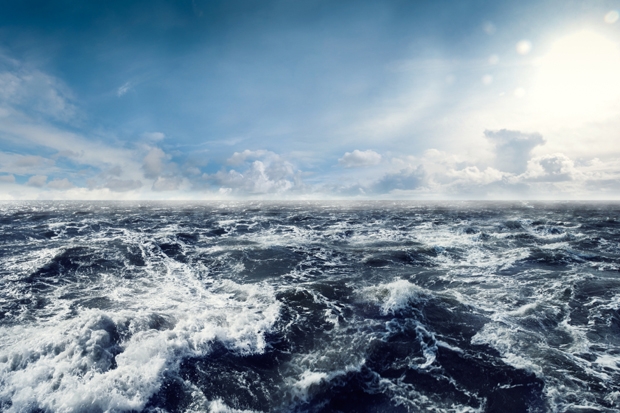When the novelist David Vann was 13, his father — a difficult, unhappy dreamer in his thirties, constantly in dread, as Vann puts it, ‘of becoming something other than what he had always imagined himself to be’, and who had failed first as a dentist and then as a commercial fisherman in Alaska — blew his head off while talking on the phone to his second wife. ‘She heard parts of his head dripping from the ceiling,’ Vann told the New York Times not long ago. ‘She still can’t use the phone with that ear.’
That history of grief, violence and trouble haunts every page of this memoir. When it begins, 30-year-old Vann, with his cool and beautiful Nancy by his side, has already had some sea-adventures and disasters. He has done well professionally and has taught creative writing at Stanford and Cornell. He is kicking around the coast of Turkey and outside Bodrum he sees a giant, beautiful steel hull, 90 foot long, waiting to be fitted out and finished. He is smitten with its possibilities of escape and fulfilment. A cartoon Turk called Seref, president of the Bodrum Chamber of Commerce, winds him in with little cups of coffee and plates of galaktoboureko. Vann borrows money like there is no tomorrow — a total of $600,000, from friends, relations and credit card companies, dreaming of the future in which this steel hull will become the beautifully varnished floating, cruising classroom in which to take foreigners on educational tours of the Caribbean and the Med.
You gaze entranced as his destiny unfolds. Seref is a cheat. Hugely expensive diesel engines are wrongly installed and seawater corrodes them from inside. Smooth expensive paint falls off the hull, decks leak, the steering system is rubbish, money runs out and the world becomes a prison of despair. Why did he ever imagine that running a large boat might be a version of freedom?
Vann must ooze charm. He persuades ever more friends and acquaintances to lend him more money and eventually he heads off in the completed boat for its winter cruising grounds in the Caribbean. Calypso never promised a more delicious destination. But this is an Odyssean piece of mythopoiesis and off the coast of Morocco, at night, in a rising wind, Vann’s journey turns for Hades.
At first the hydraulics come adrift of the rudder and then the rudder itself falls away. No steering in an increasingly wild stretch of the Atlantic. For the following 30 pages Vann pulls off the most gripping passage of sea-catastrophe writing I have read outside Conrad, a chest-tightening, concretely detailed, cold, sickening and cumulatively desperate depiction of life turning murderous. By his own account, using only the throttles on the two big Perkins diesels, he manages his big and ungainly craft in huge and steepening seas. A German freighter hovers nearby, vulturine, waiting to claim the boat for salvage. A Moroccan helicopter arrives but has no radio and cannot communicate. Eventually, after titanic struggles, Vann’s boat is taken in tow, he gets his crew into a life raft and in thrashing, rolling breakers climbs aboard the German ship, everyone safe, and his life in ruins.
You can’t help but admire Vann the writer. Any addict of heavy weather sailing should settle into a great evening by the fire for this passage alone. But Vann the man is a rather different matter. Almost no one comes well out of this story except the sainted Nancy. Men in dockyards, lawyers, employees: virtually all are dark and untrustworthy. His honesty about his own failings — a cocktail of discontent, self-justification, unhappiness, fear, guilt, shame, self-pity and persecution — is so extreme it is almost toxic. Complicated legal and financial wrangles ensue until eventually the replacement rudder falls off again, taking a bit of hull with it, and the boat sinks into over 5,000 feet of water, a mile down, with Nancy and Vann once again floating free.
Perhaps this book is about the gap between writer and man. Take for example his wonderful description of the beauties of welding, ‘the funnel of energy shielded by the inert gas’, ‘a miniature environment of purity’, the aluminium forming ‘a molten crescent moon’, a process ‘as beautiful as writing or love’. Irresistible, visionary. But then Google ‘David Vann welds scary’ and you will be brought face to face with something else: blobs of half-attached metal, hopelessly done, the essential inadequacy of the home-made trimaran in which Vann made a (later, failed) attempt to sail around the world. But he could write it perfect.






Comments